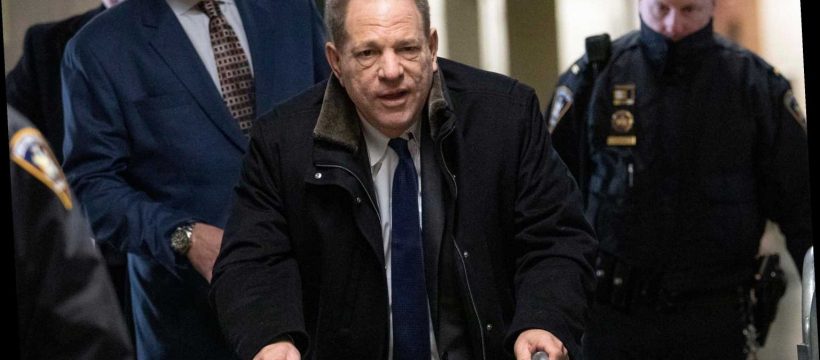NEW YORK – Harvey Weinstein’s sex-crimes trial began its third week Tuesday with lawyers arguing over a key element of Weinstein’s defense: Email exchanges between the fallen movie mogul and his accusers.
Now that a jury of seven men and five women, with three alternates, has been selected, opening statements in the case are scheduled to begin Wednesday.
Weinstein is charged with five sex crimes, including rape and sexual assault, stemming from encounters with two women, one who says he raped her in 2013 and the other who says he sexually assaulted her in 2006. Weinstein has pleaded not guilty and denies all charges of non-consensual sex.
But since his indictment in May 2018, Weinstein’s changing lineup of defense lawyers (he’s now represented by a third team), has been signaling and declaring in court documents that they will question the credibility of the accusers’ allegations based on scores of email exchanges between him and them, which his lawyers argue are too friendly to reflect a relationship of assailant and victim.
In court Tuesday morning, Judge James Burke asked prosecutors and defense lawyers to give a preview of their opening statements, and subsequently ruled in favor of the defense plans with regard to theirs.
Damon Cheronis, one of Weinstein’s lawyers, said his PowerPoint presentation would include excerpts of “dozens and dozens and dozens of emails” between Weinstein and the specific two women who have accused him of sexually assaulting them.
“What we’ll counter with are their own words where they describe loving relationships, sexual encounters with Mr. Weinstein, and (describe him as) someone that they care about, both before and after the alleged assaults,” Cheronis said. “We will be able to show through cross-examination that women who accused him of sexual assault also bragged about having relationships with him, and bragged about things he allegedly forced them to do.”
Harvey Weinstein arrives at court for start of third week of his sex-crimes trial in New York, Jan. 21, 2020. (Photo: Richard Drew, AP)
He said opening statements are aimed at telling the jury what the evidence will show.
“The evidence will show that complaining witnesses in this case sent dozens and dozens of loving emails to Mr. Weinstein,” he said. One sent her phone number after the alleged assault, another wanted to introduce him to her mother after the alleged attack, he said. “My opening statement and PowerPoint won’t be argumentative, but it will be about facts.”
Manhattan Assistant District Attorney Joan Illuzzi strongly objected. “He could discuss what he said here, but what he said here is blatantly inaccurate,” she said. “It’s not appropriate for Mr. Cheronis to show the jury (excerpted emails) in opening statements.”
Cheronis said the prosecution is “trying to obstruct the truth from coming out.”
Burke said he would not prevent the defense from including excerpted emails in their opening statement.
“My ruling is that the defendant is not allowed to use the actual hard email as a slide in the PowerPoint (but is allowed to excerpt),” he said.
Prosecutors in the Weinstein case are following the lead of Pennsylvania prosecutors who convicted Bill Cosby of sex crimes after his second trial in 2018: Calling a sex-crimes expert as a witness to dispel assumptions about how rape and sexual assault victims behave after an attack.
Weinstein’s prosecutors are using the very same expert, Barbara Ziv, who was the first prosecution witness at Cosby’s retrial and is expected to testify early in Weinstein’s trial this month.
Source: Read Full Article
